The 15 Best Shampoos For Curly Hair
The caring and keeping of curls and coils.
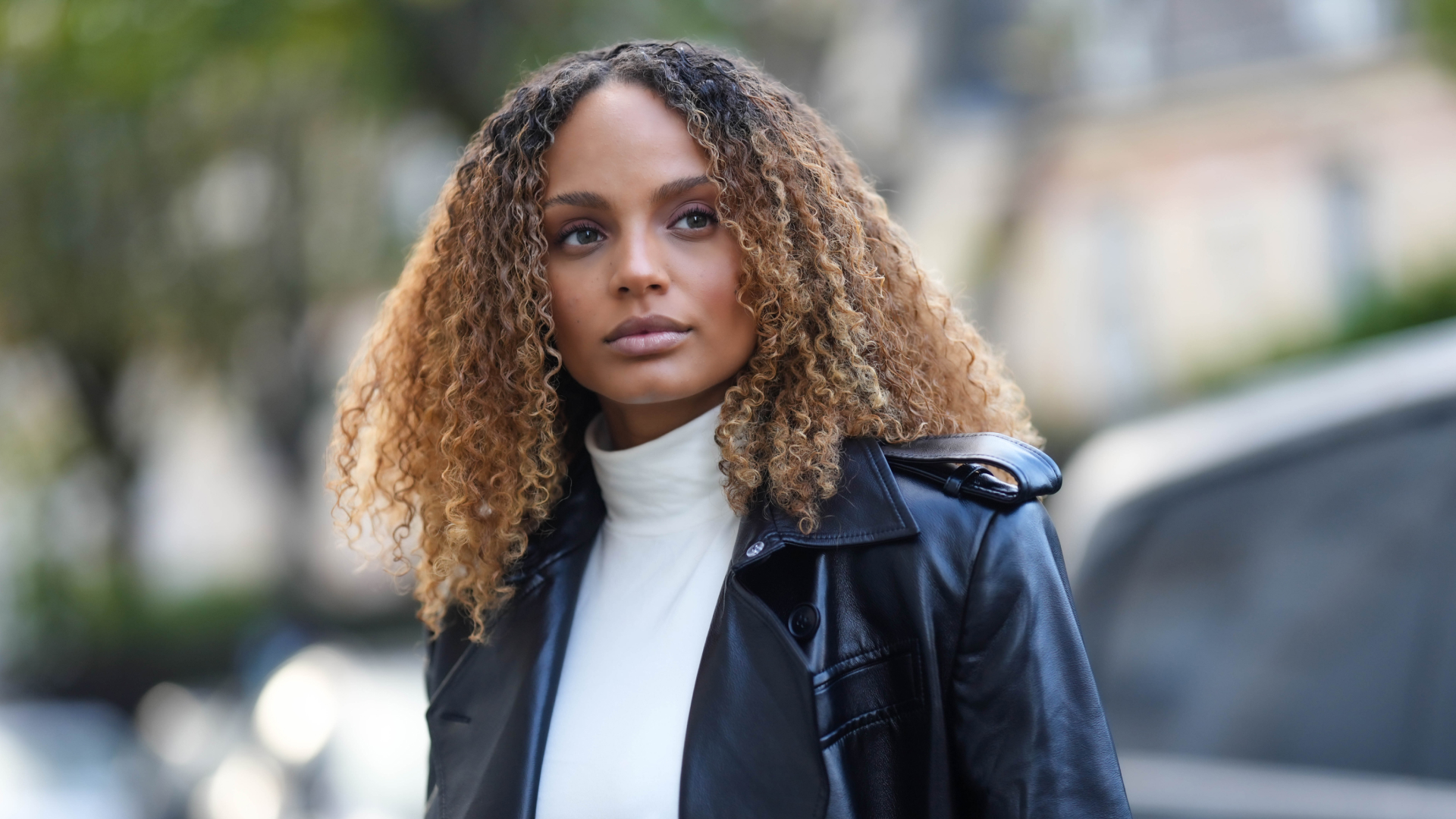

As many curly girls (like me) know, our hair can be challenging and time-consuming to take care of. In addition to finding the right products for curly hair, in addition to drying, styling, and leave-in conditioning routines, it's also essential for us to use shampoos and conditioners that hydrate our strands without weighing them down.
Recently, I noticed that my curls were looking ill-defined, limp, and all-around lackluster. I tried switching up my deep conditioner, my leave-in, and even my silk hair wrap, all to no avail. The real problem? I wasn't using the right shampoo.
"Curly hair tends to be naturally dry and porous based on the bend in the hair strand which can create cracks in the cuticle layer of the hair shaft," says Dr. Kari Williams, trichologist, hair educator, and creator of Goddess Locs. "As a result, products that seal the hair shaft and enhance moisture are important."
Still, not all moisturizing shampoos are built alike. Options vary in thickness, purpose, and formula, and there's no such thing as a one-size-fits all curly hair routine. Thus, we've consulted hair experts to demystify the experience of finding a shampoo for your curls, so you know what ingredients, qualities, and products are best suited for your unique tresses.
Ingredients To Look For
The ingredients listed on the back of a shampoo bottle are often long, complicated, and scientific-sounding. Plus, countless shampoos boast the unique oils, butters, and natural ingredients that their products have, claiming their specific formula holds the key to perfect hair. But according to experts, there are certain tried-and-true ingredients that, when incorporated into a shampoo, nourish hair while effectively banishing build-up.
Cataanda James, a natural hair stylist and brand educator for The Mane Choice, says, "Customers with curly hair should look for formulas that encourage hydration and moisture retention. Some ingredients that promote hydration and moisture are aloe vera, avocado oil, honey, agave nectar, mango butter, and glycerin." She also adds that coconut water, green tea, shea butter, Vitamin B5, and jojoba and argan oils work fantastically for curls that need an extra boost of hydration.
Aunt Jackie's Curls & Coils brand educator and hairstylist Destiny Kelly adds that customers with curls should also look for grapeseed oil and "fatty alcohols such as acetyl and cetearyl alcohol" in lists of ingredients. Plus, she recommends essential oils for an added boost.
Dr. Williams also stands behind a number of these ingredients, including avocado and jojoba oils, and aloe vera. She adds that "humectants like glycerin and panthenol," along with castor oil, rosehip seed oil, olive oil, almond oil, and "moisturizing butters like cocoa and shea" aid with hair hydration.
Finally, Dr. Williams also recommends protein-infused formulas for curly hair, saying, "All curly hair, regardless of the degree of curl pattern, needs more moisture and strengthening ingredients in products to maintain the hair's elasticity and strength. Conditioners with hydrolyzed proteins and shampoos with hydrating ingredients, like the ones listed above, will help to accomplish this."
What To Avoid
Evidently, there are a number of ingredients that have the power to help you achieve your bounciest, most defined curls yet. However, it's also important to know what types of ingredients to avoid when shopping for your next shampoo.
"Sulfate-free and paraben-free products should be used at all times," advises Kelly. "These shampoos are not harsh on the hair and scalp and strip them all of their moisture. Making sure to stay away from products with lanolin, petroleum, and mineral oils is also best in ensuring weightless curls."
Shopping Based On Curl Type
It may be tempting to think that products for curly hair work on all curls, regardless of how tight or loose they are. Moisture is moisture, right?
Not exactly. Kelly warns, "Not all products are good for every type of hair and thickness. Please beware of your hair type as well as your hair thickness." For example, she writes that "customers with fine, 3A textures sometimes may not use the same products or as much product as customers with thick 3A hair, and vice versa."
Thus, you should consider your hair thickness, curl pattern, and hair porosity (meaning how well it absorbs moisture) when seeking out for the best shampoo for your curls. Dr. Williams also advises taking into consideration other hair and scalp concerns, such as scalp health and hair growth goals.
"Customers should keep in mind the current condition of their hair strands, the health of their scalp, their styling goals, and their long-term haircare goals when looking for ingredients," she explains. "For example, someone with a flaky or itchy scalp may look for eucalyptus, tea tree oil, or peppermint oil in their products, while someone wanting to promote hair growth should look for lavender, horsetail, or rosemary oil."
And, of course, it's important to take into account your curl pattern: Are your curls on the wavier side, are they tight coils, or do they lie somewhere in between? One of easiest ways to determine your curl pattern is to use the hair typing system, which increases by number and letter value as hair gets curlier. For instance, Type 1 hair is generally straight, while Type 2 hair is wavy, Type 3 hair is curly, and Type 4 hair is coily. Within each numbered type are three lettered sections, meaning you can have Type 4A, 4B, or 4C hair, with each progressive letter signifying a gradual increase in curliness.
The curl system isn't perfect, though. Dr. Williams says, "The hair typing system doesn't consider the nuances of hair anatomy or the individual needs of the customer." In addition to not taking into consideration your scalp's needs or your hair's level of thickness, the system also doesn't account for the fact that many people have different curl patterns in different parts of their hair.
Thus, we've broken down how to shop for your curl pattern by using the general, inclusive categories of loose curls and tight coils, so you can better understand the ingredients that are best for you—without spending hours studying curl pattern charts.
For Loose Curls
For those with loose curls, it's important to hydrate hair with lightweight ingredients so that it doesn't get weighed down.
"To avoid weighted, limp curls on lower curl patterns from wavy to curly (2A-3A), formulas containing hydrous ingredients such as coconut water and green tea are best," says James. "Looser curl types and/or hair that is fine/thin should also avoid applying product at or near the root. It is best to apply product about two inches beyond the root from mid-lengths to ends."
Kelly adds, "The main ingredients that different hair types should be cautious of are oils. Some oils are heavier than others, which can cause different hair types to be weighed down. Hair types such as 3A should stay away from oils such as coconut and castor oil, because although these oils feel light, they are actually heavy and will weigh the hair down."
Dr. Williams agrees, writing, "Oils and butters are heavier ingredients that work great for thick curly hair, but can weigh down finer hair strands and looser curls." Instead, she recommends using lightweight formulas, such as water-based ones or ones that incorporate cetearyl alcohol. The latter, she explains, is "an emollient that hydrates the hair and helps strands feel smooth without weighing them down."
For Tight Curls and Coils
James says that those with tighter curls benefit from cream- and butter-based formulas, recommending "non-translucent" shampoos in particular. Kelly agrees, adding, "Shea butter and castor oil are great for 4C textures because it helps eliminate frizz."
However, Kelly reminds us that not all oils are alike, and to pay attention to which oils are being used in a particular formula.
"There is a big difference between scalp and hair oils, and 4C customers should be very aware of this," she cautions. "Some oils such as peppermint and tea tree oil should only be used as scalp stimulating oils and not moisture replenishing oils." She also advises those with tight curls and coils to "stay away from over-drying agents such as bad alcohols."
Finally, products are made effective not only by their ingredients, but also by how they're applied."
"Proper application of products matters just as much as the formula," James says.
Higher curl patterns typically do not get too greasy or oily since curly hair is naturally drier. One of the reasons curlier hair is drier stems from the structure of the hair. Natural oils do not easily disperse from the root down the lengths of the hair shaft as they does with looser curls and straighter textures."
Below, our list of curly hair shampoos, which includes options for waves, curls, coils, and everything in between.
The Best Shampoos for Curly Hair
- Best Scalp-Soothing Shampoo for Curly Hair: Aunt Jackie's Aloe & Mint Recipes Lather Up Stimulating Hair Moisturizing Shampoo Creme
- Best Clarifying Shampoo for Curly Hair: MONDAY Haircare CLARIFY Shampoo
- Best Shampoo for Type 2 and 3 Curls: DevaCurl CURLBOND Re-Coiling Mild Lather Cleanser
- Best Shampoo for Tight Curls and Coils: BREAD Beauty Supply Hair Wash Gentle Milky Hair Cleanser
- Best Shampoo for All Curl Types: Gisou Honey Infused Hair Wash Shampoo
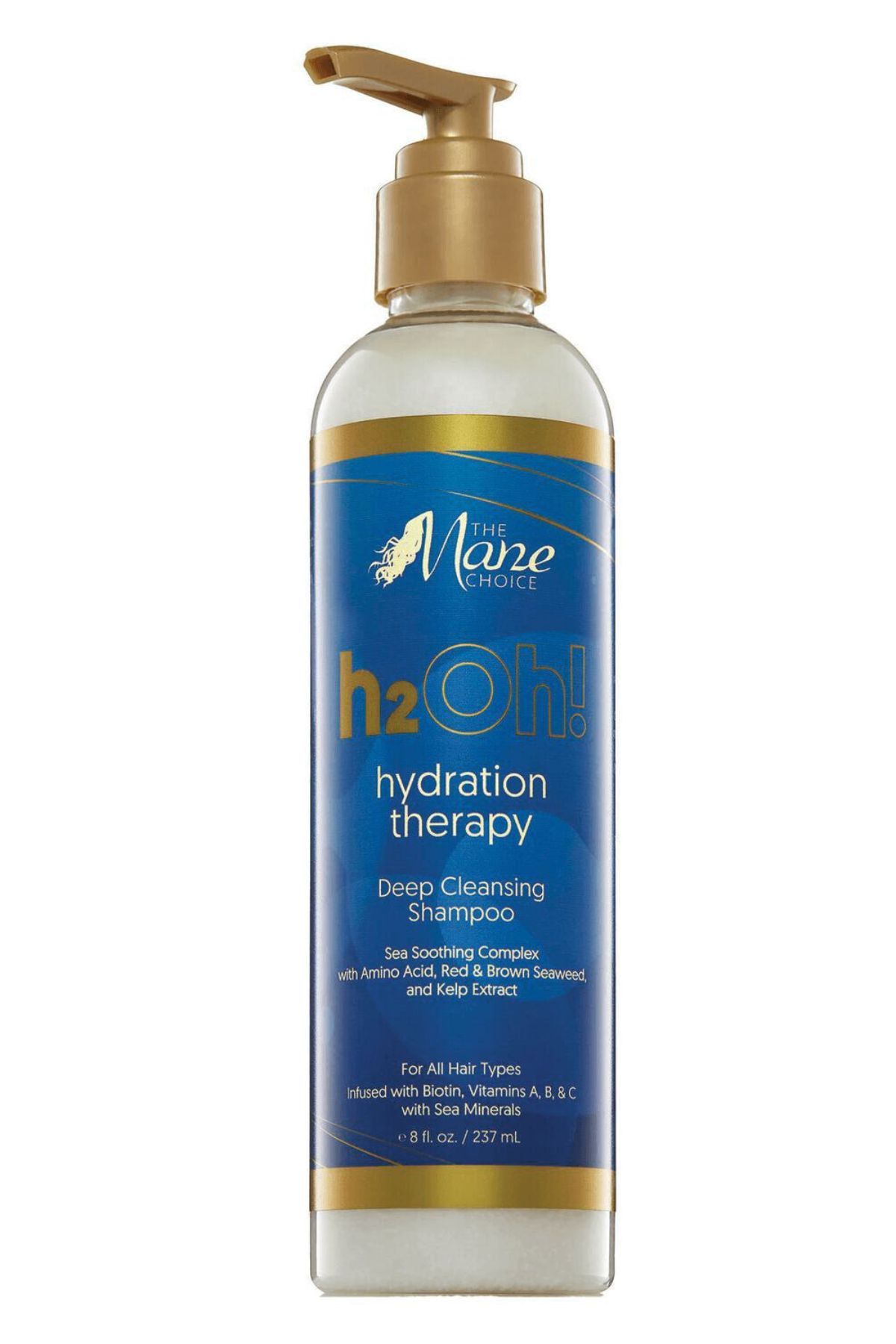
"This shampoo provides a deep yet gentle cleanse to remove excess oil, dirt, and pollution," says James. "It enhances hair's natural shine and helps to improve hydration and manageability. Recommended for all hair types, this formula deep cleanses without stripping the hair. The foam is creamy and rich, providing hydration and moisture, but it rinses away clean, leaving no residue on the hair shaft while it enhances shine. Formulated by blending red and brown seaweed, algae, and kelp, known for their detoxifying properties, it also includes sarcosine, a naturally occurring amino acid promotes a clean, healthy look and feel on the scalp and hair."
Pros: stylist-approved; uses natural ingredients; gentle; color-safe; detangling; sulfate-free
Cons: strong fragrance
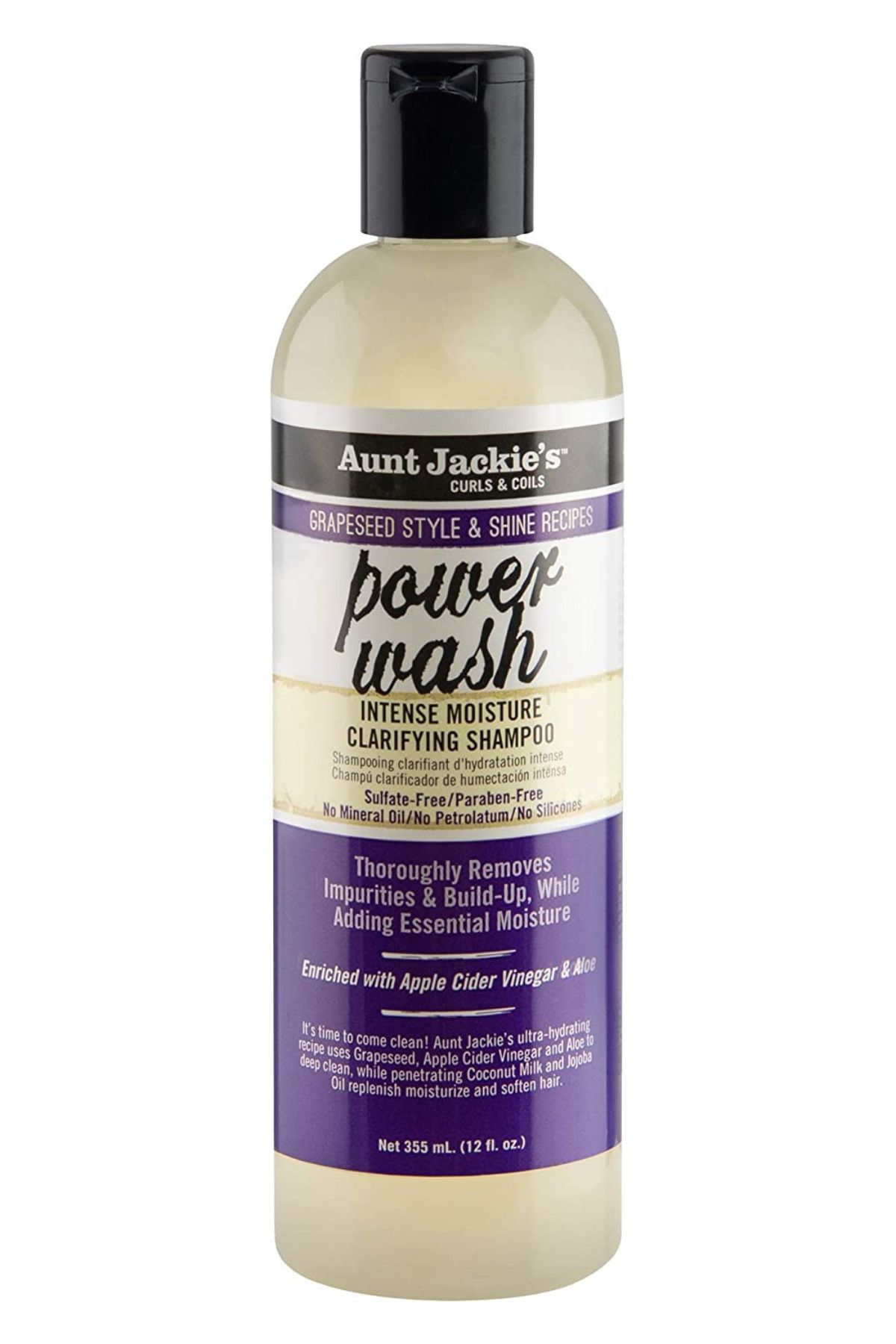
Looking to cleanse your curls and scalp of nasty build-up left by hair products, pollution, and sweat? Kelly says, "Power Wash Intense Moisture Clarifying Shampoo is great for clarifying the hair and scalp and should be used at least once a month. Power Wash helps eliminate the build up from product use over time."
Pros: works with all hair types; stylist-approved; made with natural ingredients like aloe, grapeseed oil, and apple cider vinegar; free of sulfates and parabens
Cons: clarifying, so not suited for everyday use
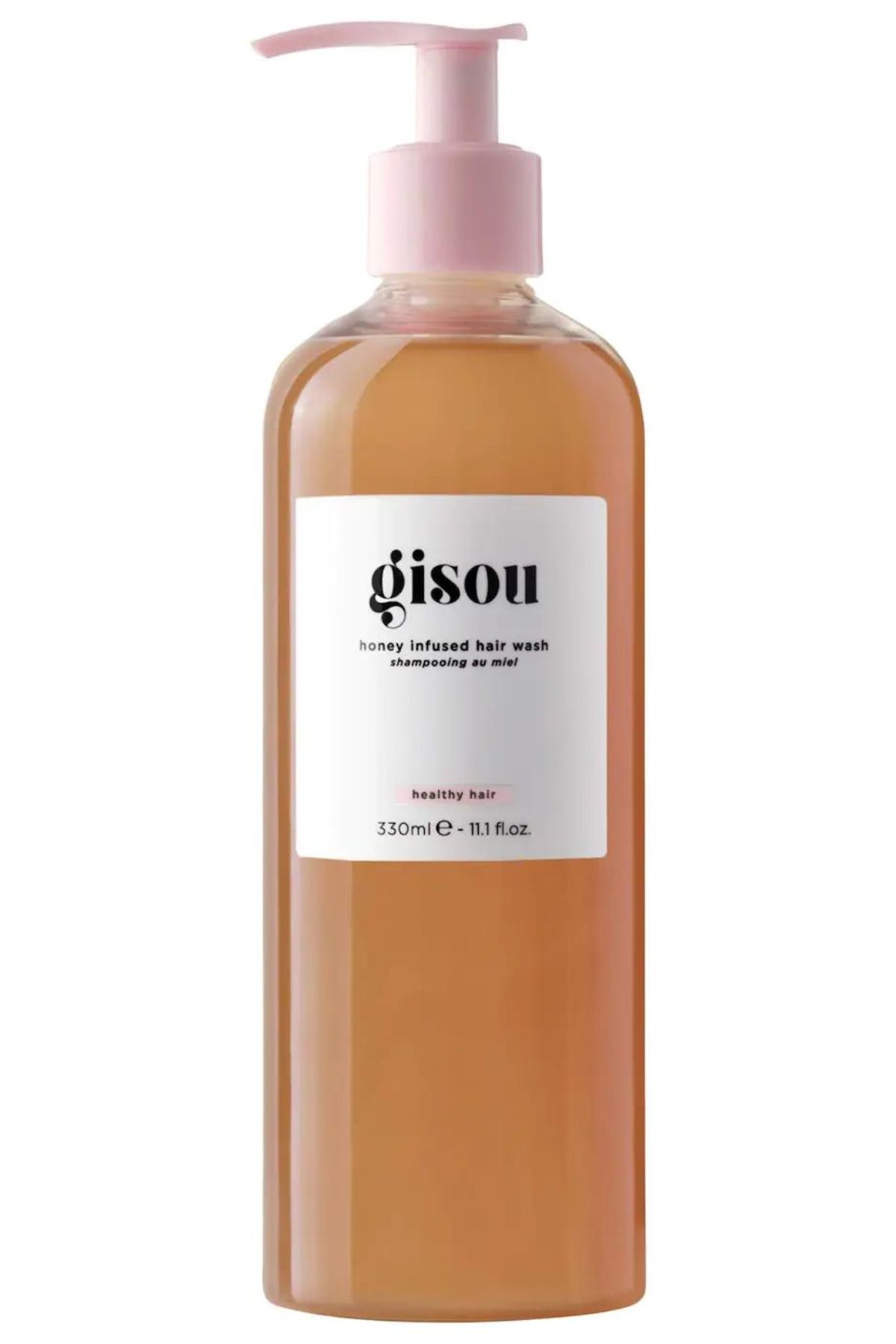
This honey-infused option from Gisou is made using clean ingredients and promises to leave hair feeling softer, cleaner, and smoother. Multiple reviewers rave about the scent and swear that it tamped down frizz after just one use.
Pros: free of sulfates, SLS, and SLES; clean; color-safe; works on all hair types; protein-infused; popular scent; works on all curl types; made from natural ingredients
Cons: some users report that it doesn't lather well
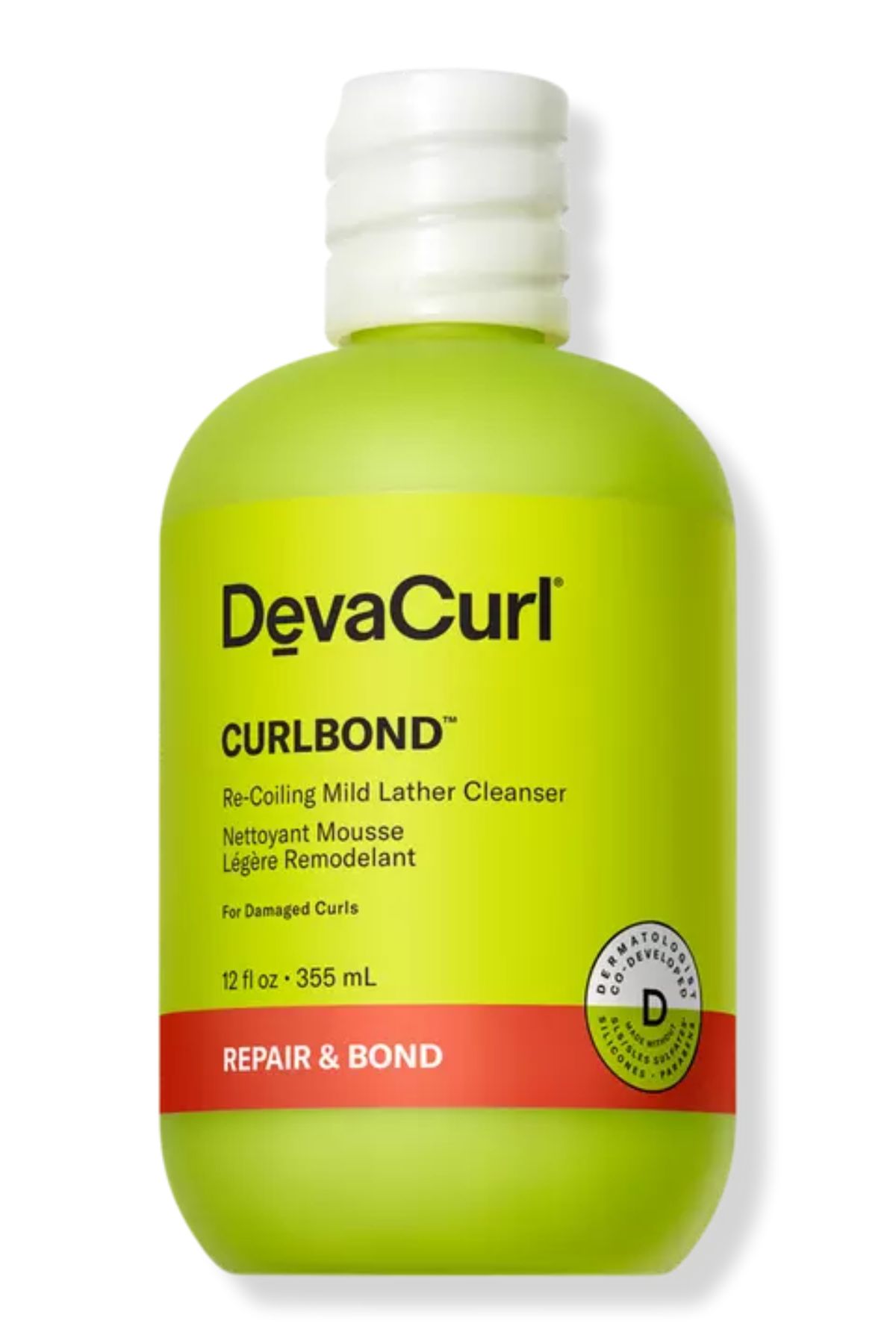
"This is a gentle cleanser that also helps to restore curls that have gone limp or have lost their elasticity," says Dr. Williams. "In true curl friendly fashion, I love how this sulfate-free cleanser is super hydrating and includes a patented blend of amino acids to keep the hair strands strong."
Pros: enhances bounce; gentle on hair and scalp; sulfate-free; trichologist-approved
Cons: expensive for relatively small bottle
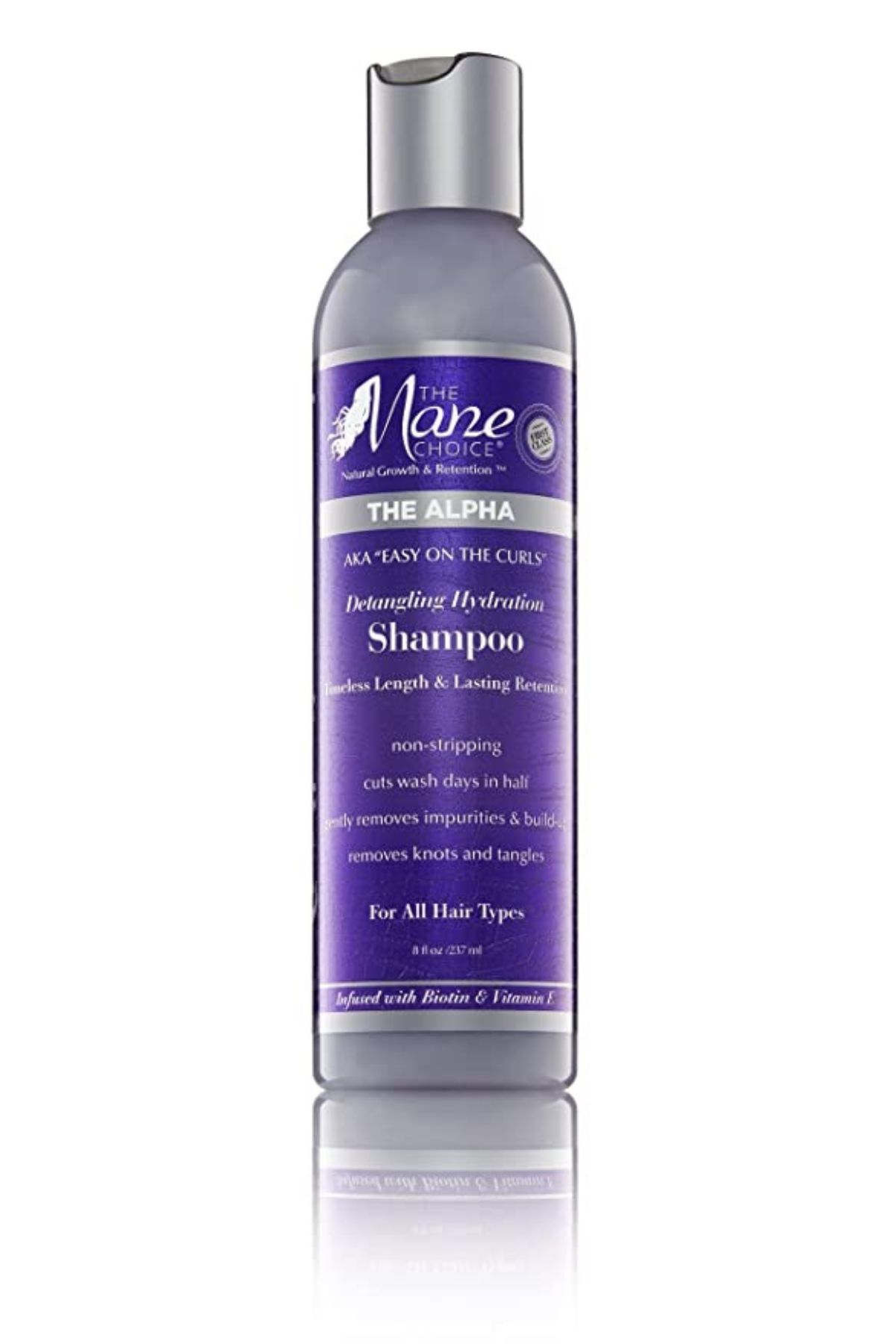
James says that this shampoo from The Mane Choice "is a favorite for dry hair because it gently cleanses, removing impurities and buildup while intensely hydrating the hair." Furthermore, she explains, "The shampoo phase is the first step in hydration and the nourishing blend of ingredients helps in eliminating knots and tangles for a less intense Wash Day experience."
Pros: works on all curl patterns; detangling; gentle; stylist-approved; free of sulfates and parabens
Cons: small bottle
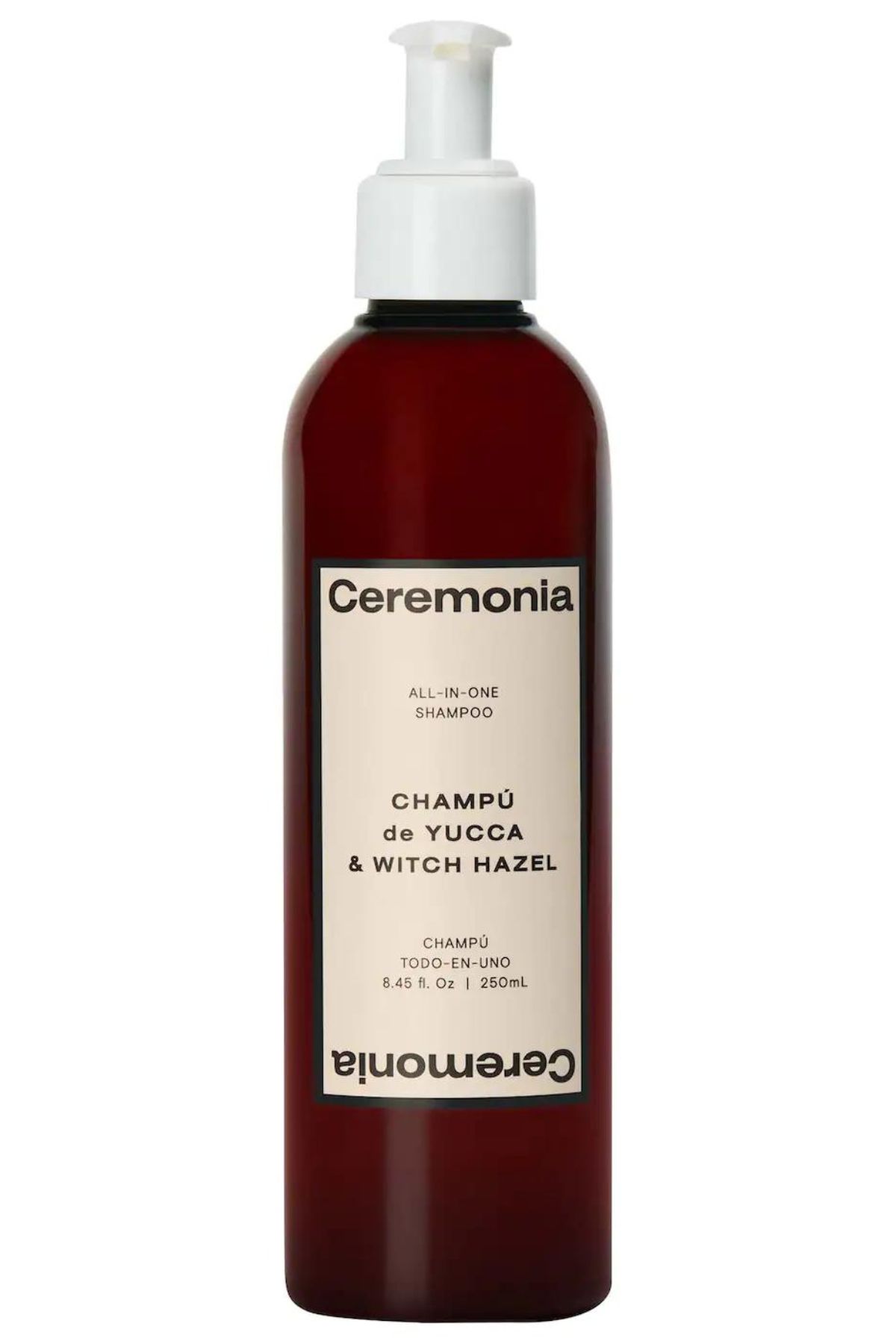
This shampoo from Ceremonia is ultra-hydrating and made to lather effectively without using any harsh ingredients to do so. Customers with coily hair are particularly fond of this formula, saying that it's perfect for defining curls and bringing dry, frizzy, over-processed hair back to life.
Pros: clean; free of sulfates, silicones, SLS, and SLES; Latinx-owned brand; works on all hair types and curl patterns
Cons: some users dislike the scent
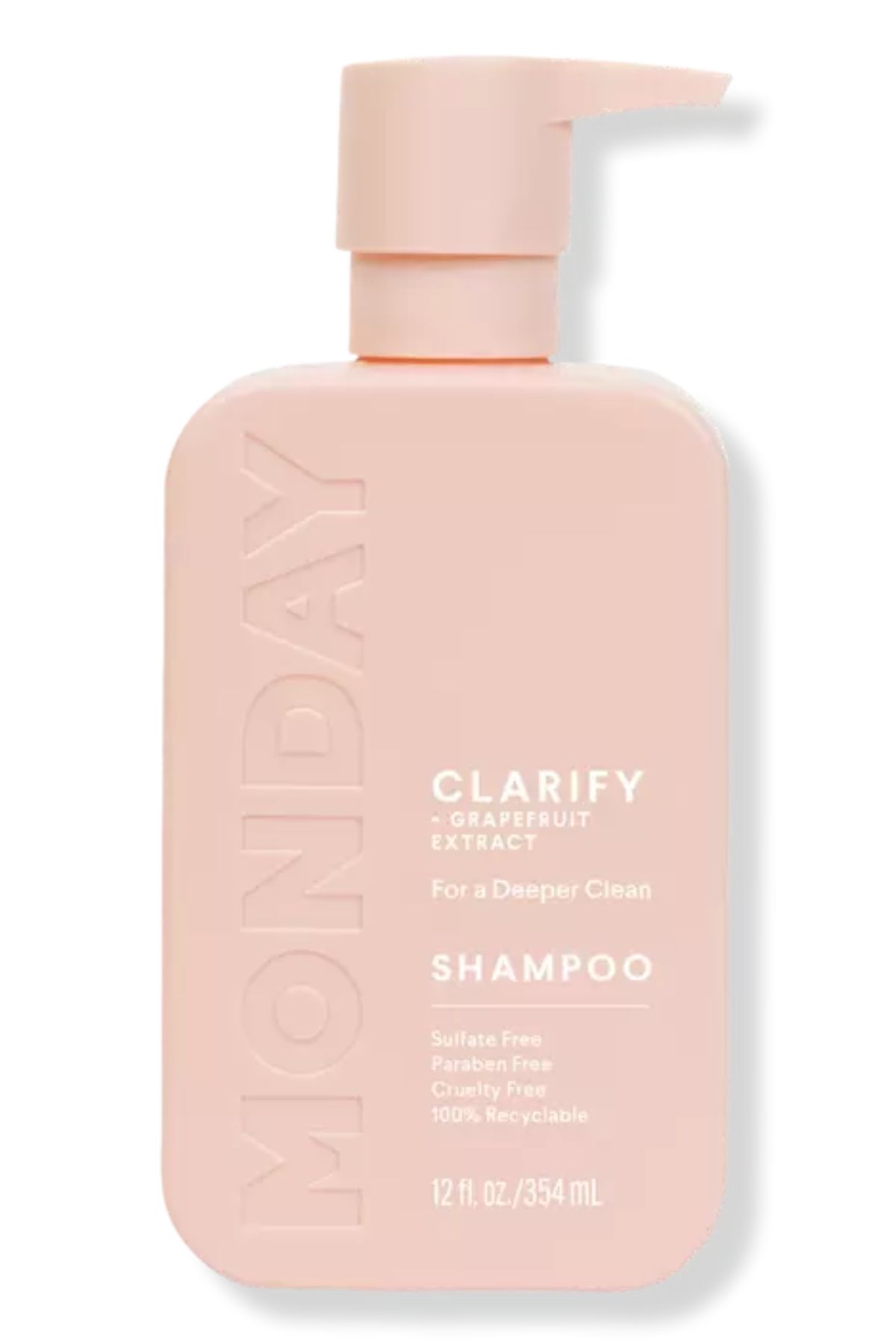
I'm obsessed with this shampoo. I have type 3A curls, and while I have high hair-density, my strands themselves are thin, which means that my mane's need for hydration is constantly tempered by how easily my curls get weighed down. Enter this clarifying shampoo: I use it about once a week, particularly if I've been using a lot of leave-in, and my curls instantly feel softer and bouncier.
Pros: editor-approved; clarifying; gentle; supports scalp health; affordable; vegan; cruelty-free; sustainable packaging
Cons: clarifying, so not suited for everyday use
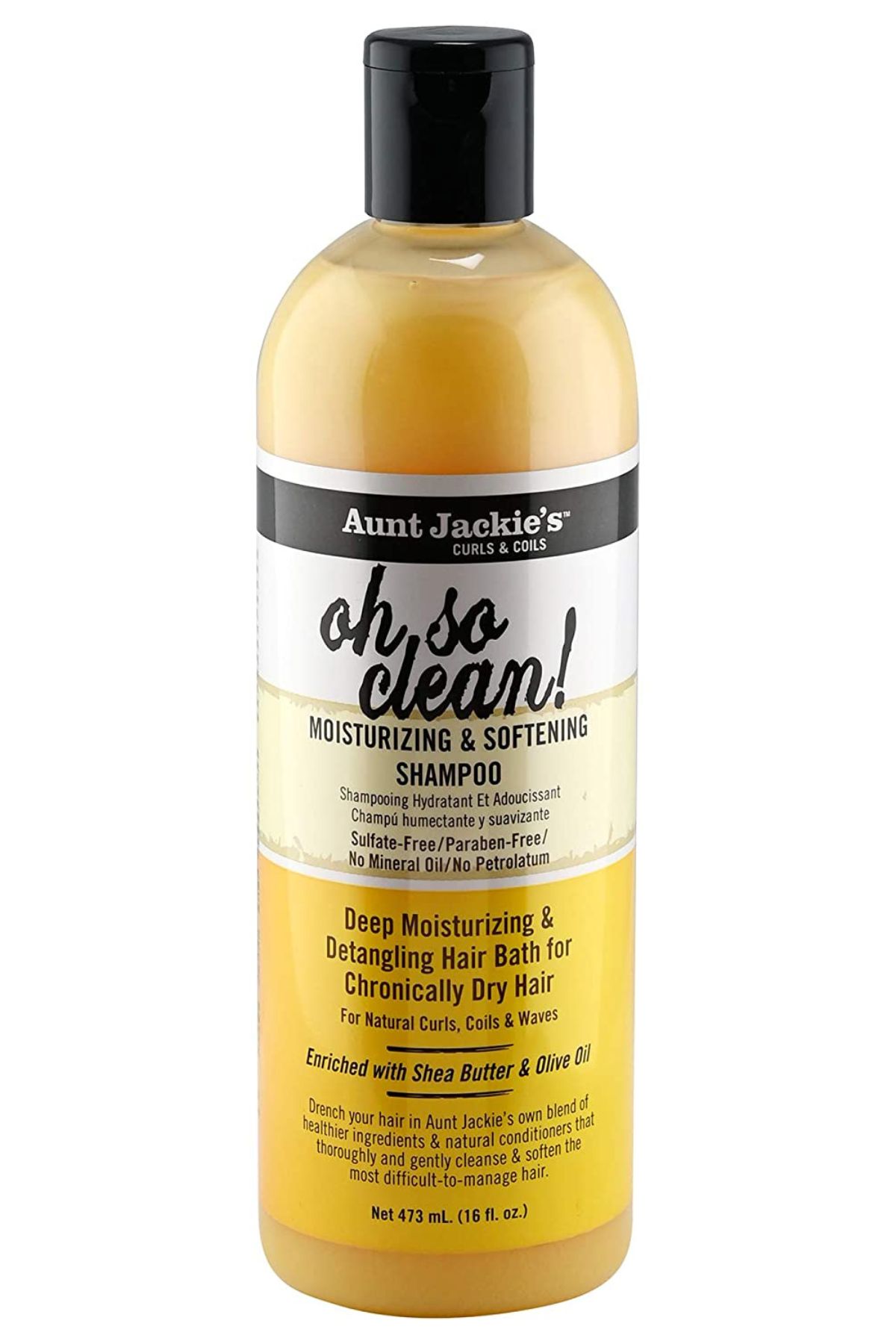
Kelly writes, "Oh So Clean Moisturizing & Softening Shampoo is great for replenishing the hair's moisture. It softens and hydrates the hair allowing it to be easier to comb through and eliminate tangles."
Pros: softening; detangling; works on all curl patterns, including wavy hair; free of silicones, parabens, and alcohol
Cons: contains sulfates
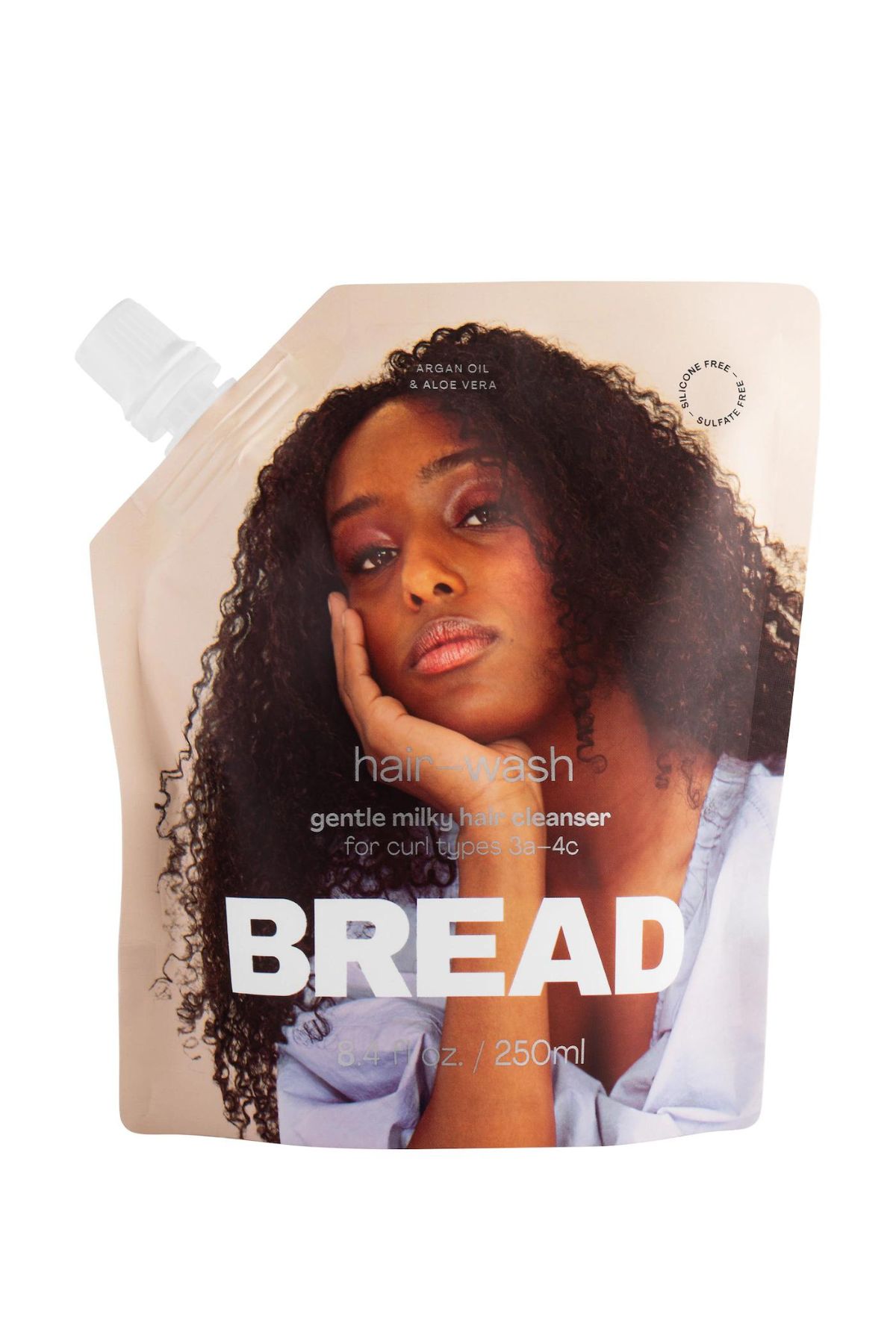
Customers of all hair types absolutely love this cleanser from BREAD Beauty Supply, raving that it leaves hair feeling soft and moisturized while simultaneously ridding it of build-up. Plus, several reviewers note that although this product gave them a deep cleanse, it didn't dry out or irritate their sensitive scalps.
Pros: made with curly and natural hair in mind; clean; free of sulfates, SLS, and SLES; Black-owned brand
Cons: small container
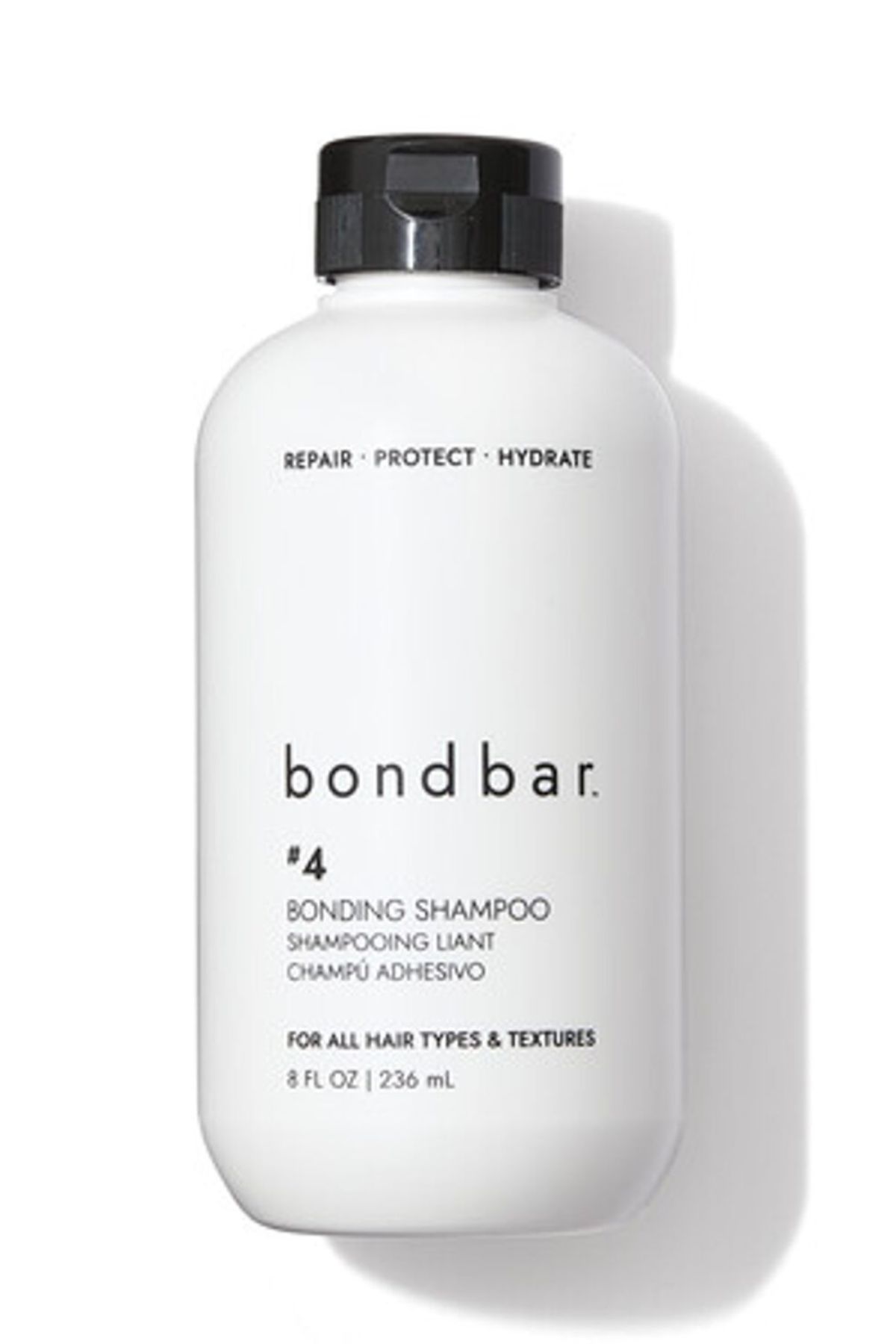
Bianca Renee Adkins, a DIY Curly Hair Expert for Sally Beauty, says that this is one of her favorite shampoos "because it gently cleanses the hair while adding shine and moisture. It also helps bond and repair damaged hair."
Pros: stylist-approved; gentle; shine-enhancing; good for damaged hair; cruelty-free; free of parabens, phthalates, SLS, and SLES; vegan
Cons: some reviewers complain about the smell
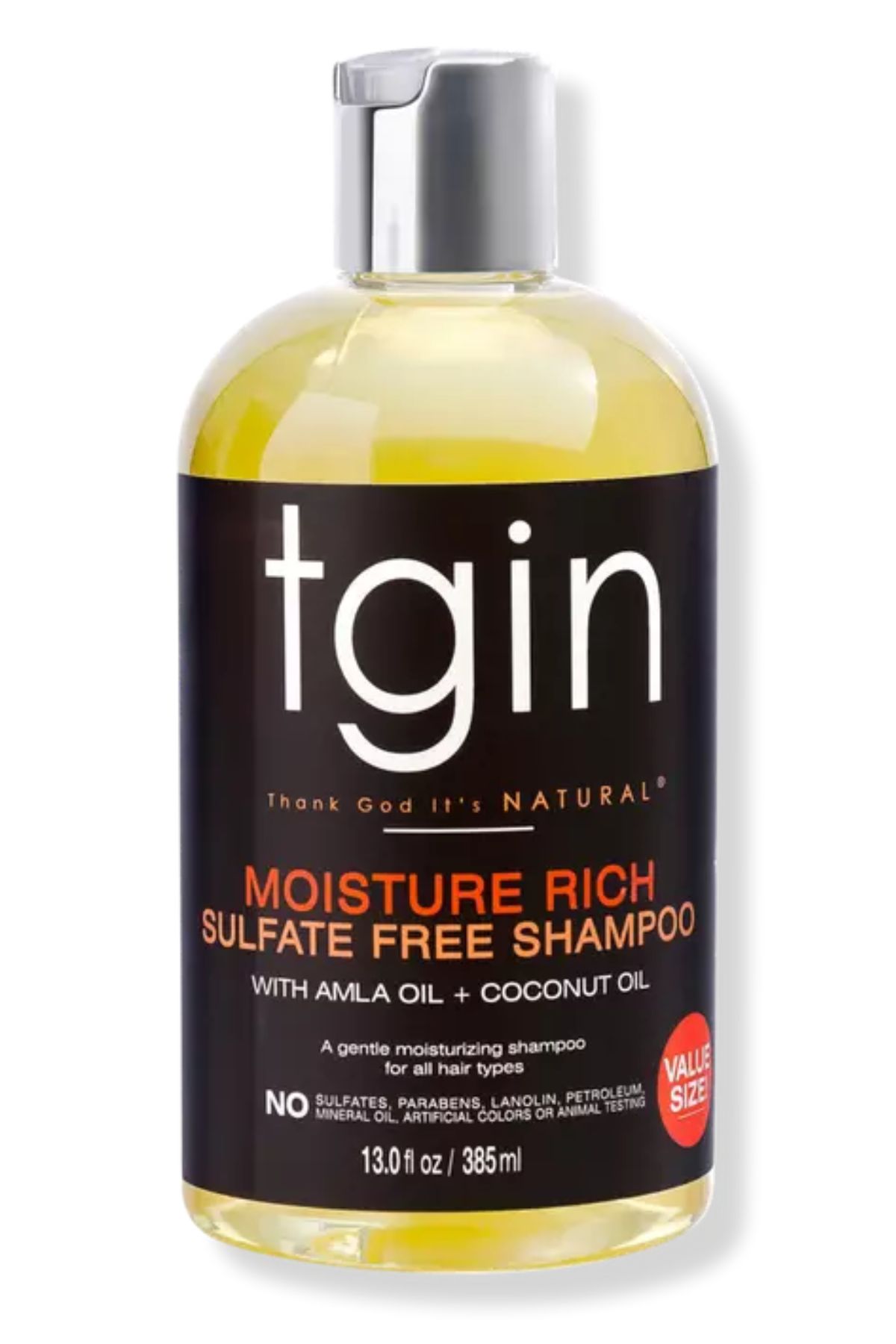
Dr. Williams recommends this option as well, citing that it's both gentle and sulfate-free. She also say that it's "super rich with hydrating ingredients like panthenol, aloe vera and a blend of moisturizing oils that will leave the hair feeling soft and smooth."
Pros: trichologist-approved; sulfate-free; incorporates natural ingredients; softening; sustainable packaging
Cons: some users say it doesn't consistently lather well
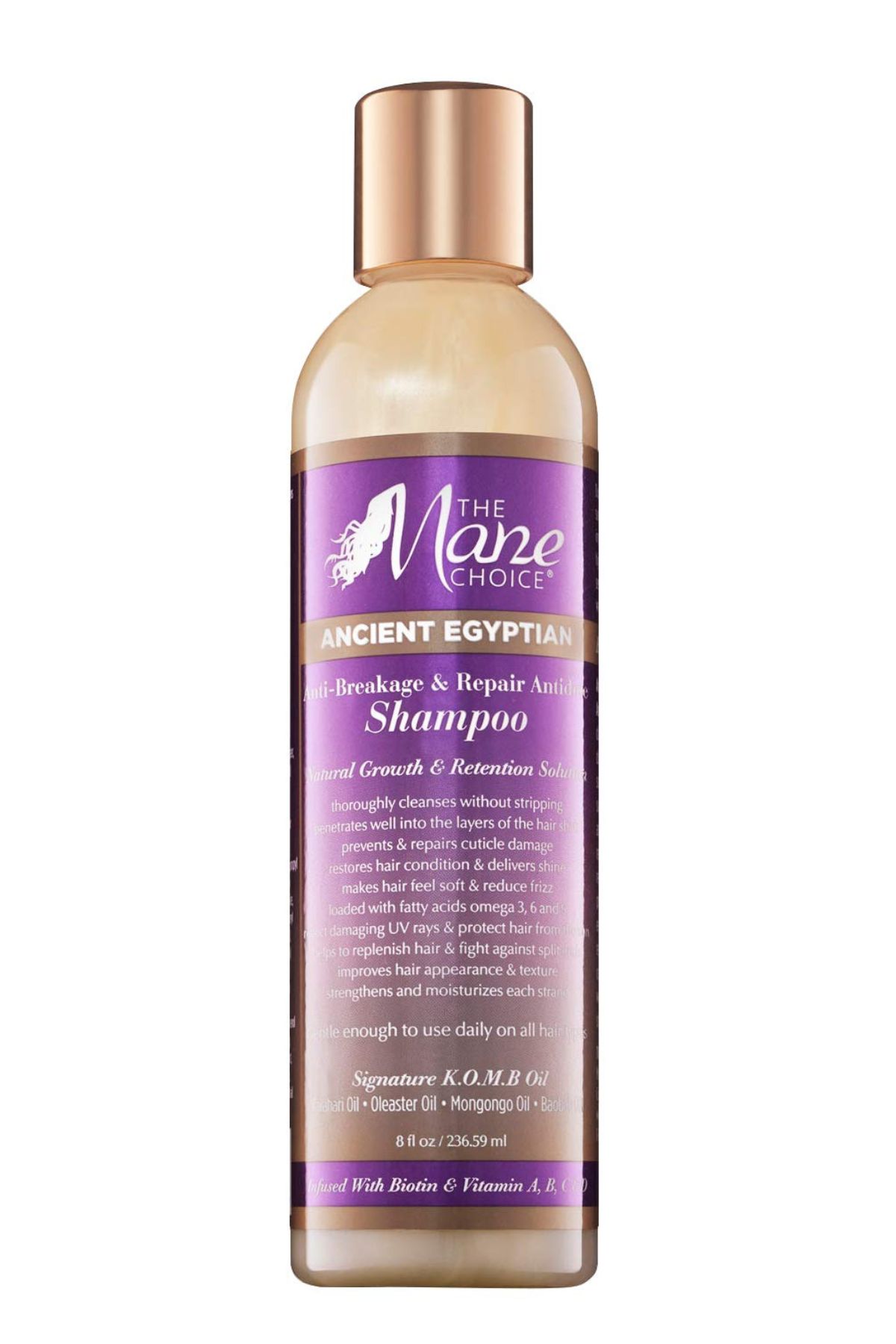
James says that this inexpensive option "helps to restore dry, damaged hair that is prone to breakage and split ends often caused by over manipulation of your natural curls." She adds, "It boosts hydration and moisture while it simultaneously cleanses, protects, and repairs the hair. If you desire instant gratification, this shampoo for all hair types is formulated to leave your hair looking and feeling stronger, healthier, and more lustrous."
Pros: affordable; stylist-approved; immediate results
Cons: strong smell
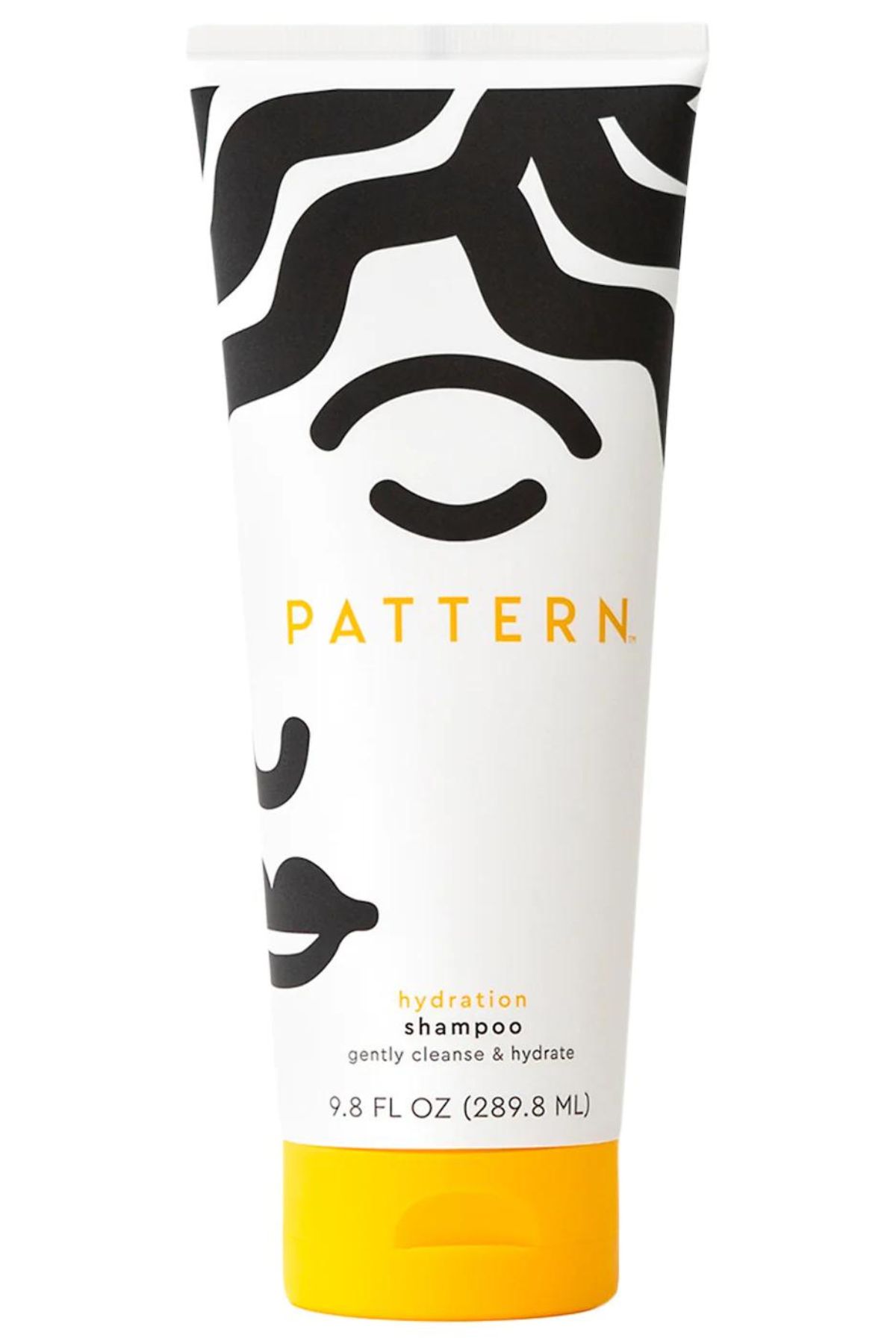
Tracee Ellis Ross' haircare line, PATTERN, has taken the curly world by storm. Not only are these products cruelty-free, but they're made with curls in mind, catering to all combinations of curl and coil patterns across the spectrum. Reviewers report improved definition and shine after using this shampoo, and they're crazy about the scent!
Pros: works on all curl patterns; hydrating; curl-defining; color-safe; free of parabens, SLS, SLES, and phthalates; made with natural hair in mind; cruelty-free; Black-owned business
Cons: some users feel it's not clarifying enough
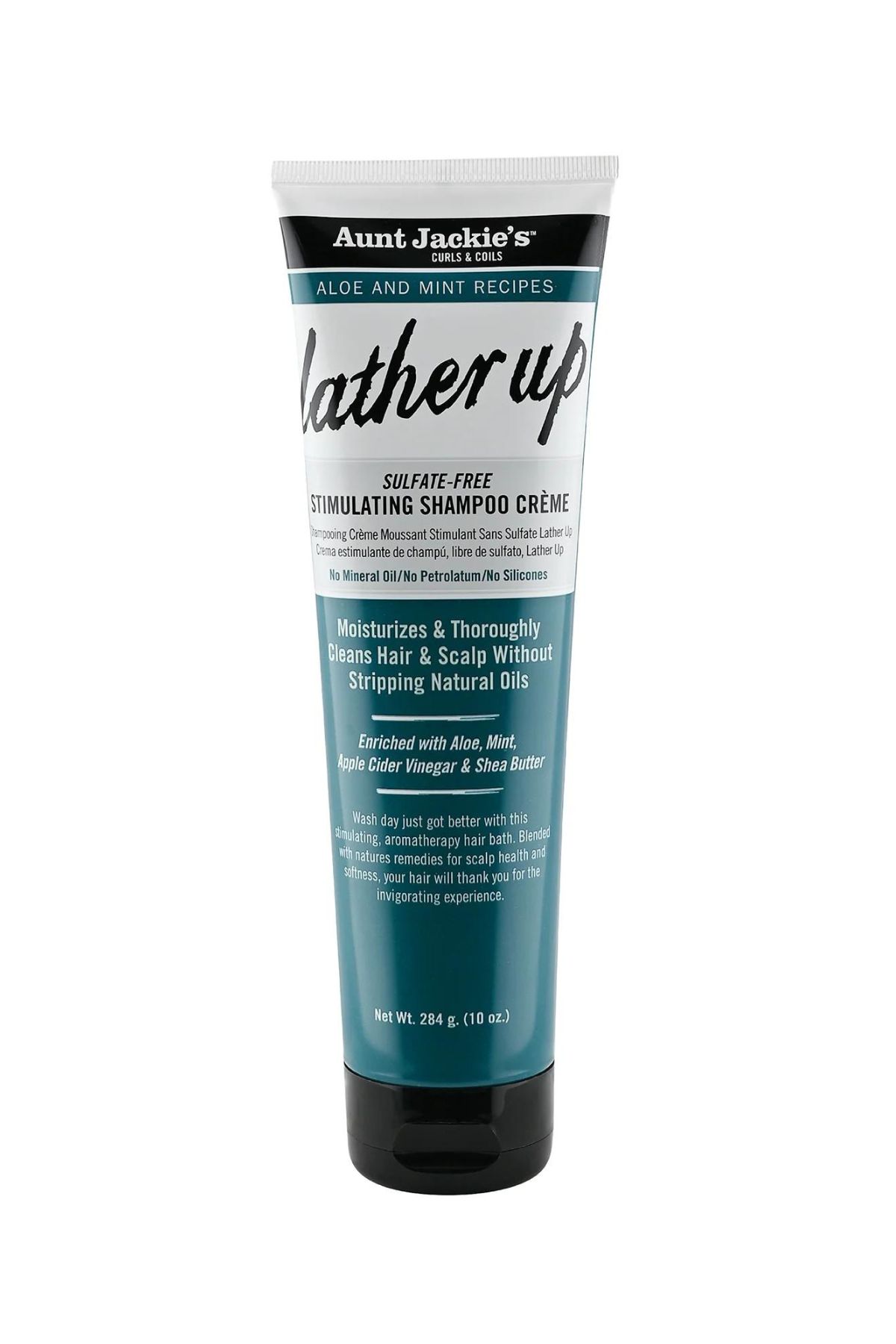
Kelly says that this formula from Aunt Jackie's "is great for stimulating and cleaning dry scalp. Its aloe, mint and apple cider vinegar help cleanse the hair and scalp while replenishing the moisture with shea butter to give the hair a healthy balance. Its aromatherapy scent is also amazing."
Pros: sulfate-free; affordable; removes build-up; supports scalp health; stylist-approved
Cons: strong scent
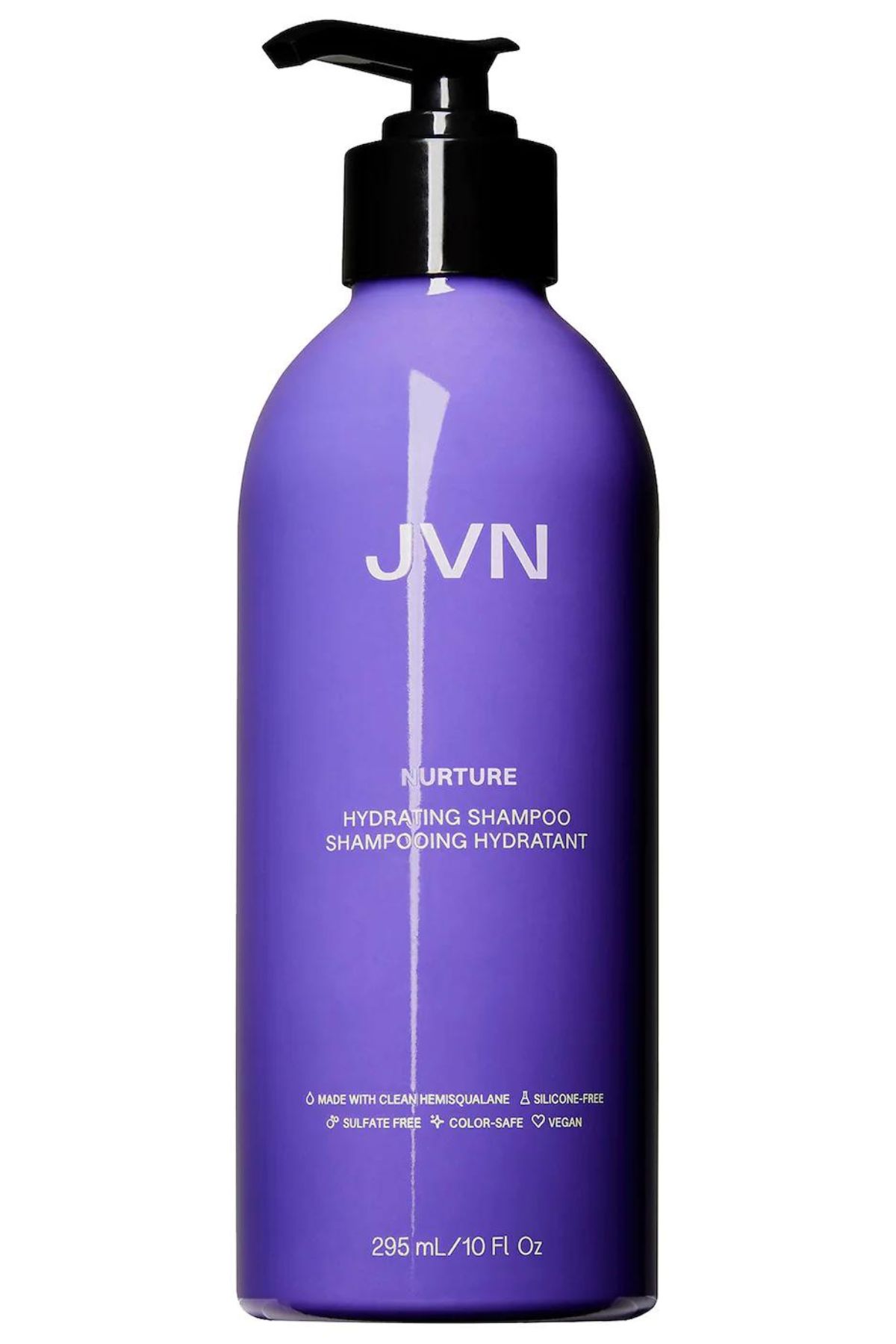
Dr. Williams highly recommends this shampoo from JVN for a boost of hydration. She says, "This hydrating shampoo is formulated with some of the best hydrating ingredients for hair including panthenol, aloe vera and the unique, amazing natural emollient hemisqualane which seals in moisture and strengthens the hair without weighing it down."
Pros: trichologist-recommended; hydrating; shine-enhancing; clean; frizz-fighting; silicone-free; vegan
Cons: some customers don't like the scent
Meet the Experts
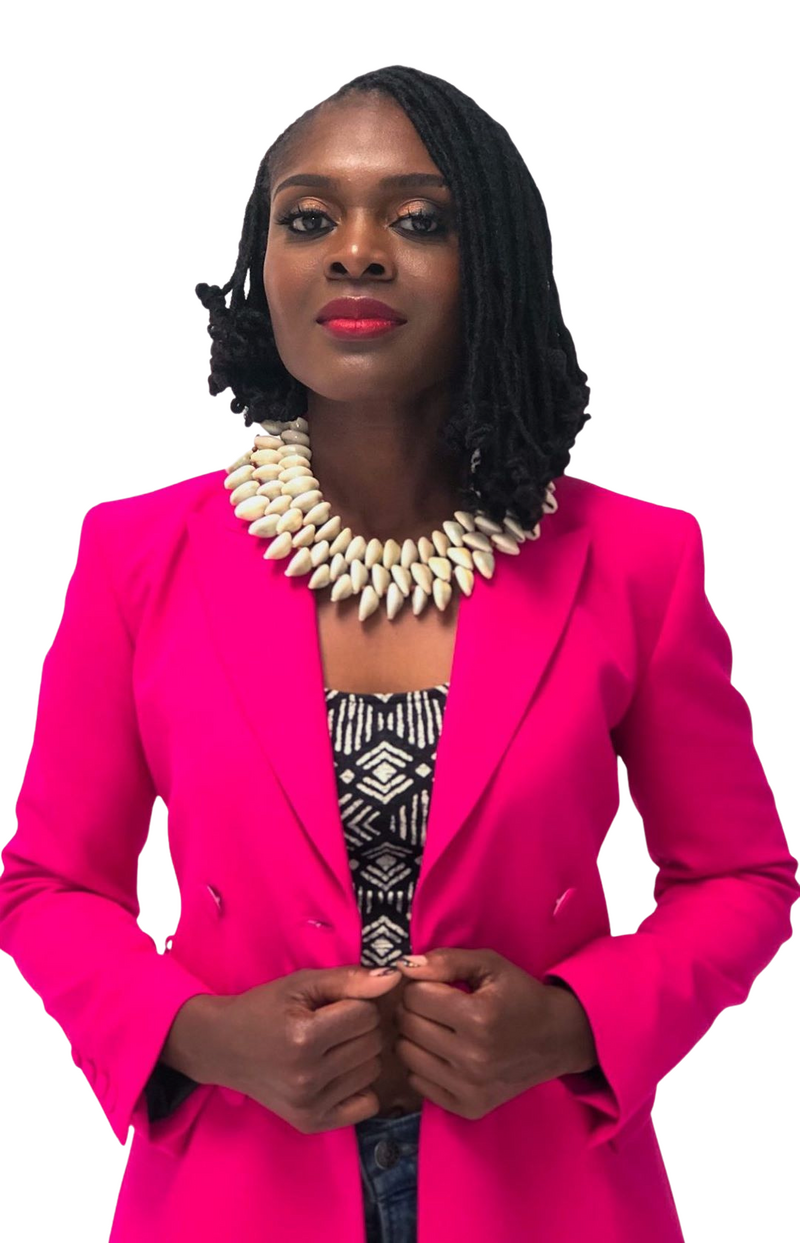
Dr. Kari Williams is a trichologist, hair educator, speaker, and founder of Goddess Locs as well as the Mahogany Hair Revolution natural hair salon and trichology center in Los Angeles. With over 18 years of experience styling natural hair and training other stylists, she has served as the president of the California State Board of Barbering and Cosmetology and has worked with notable celebrities such as Ava Duvernay, Willow Smith, Brandy Norwood, and Meagan Good.
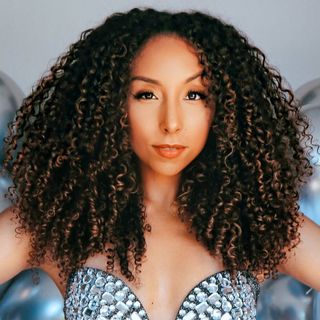
Bianca Renee Adkins is a hair stylist and content creator who specializes in the care and keeping of curls and coils. Currently, she works as a DIY Curly Hair Expert for Sally Beauty.
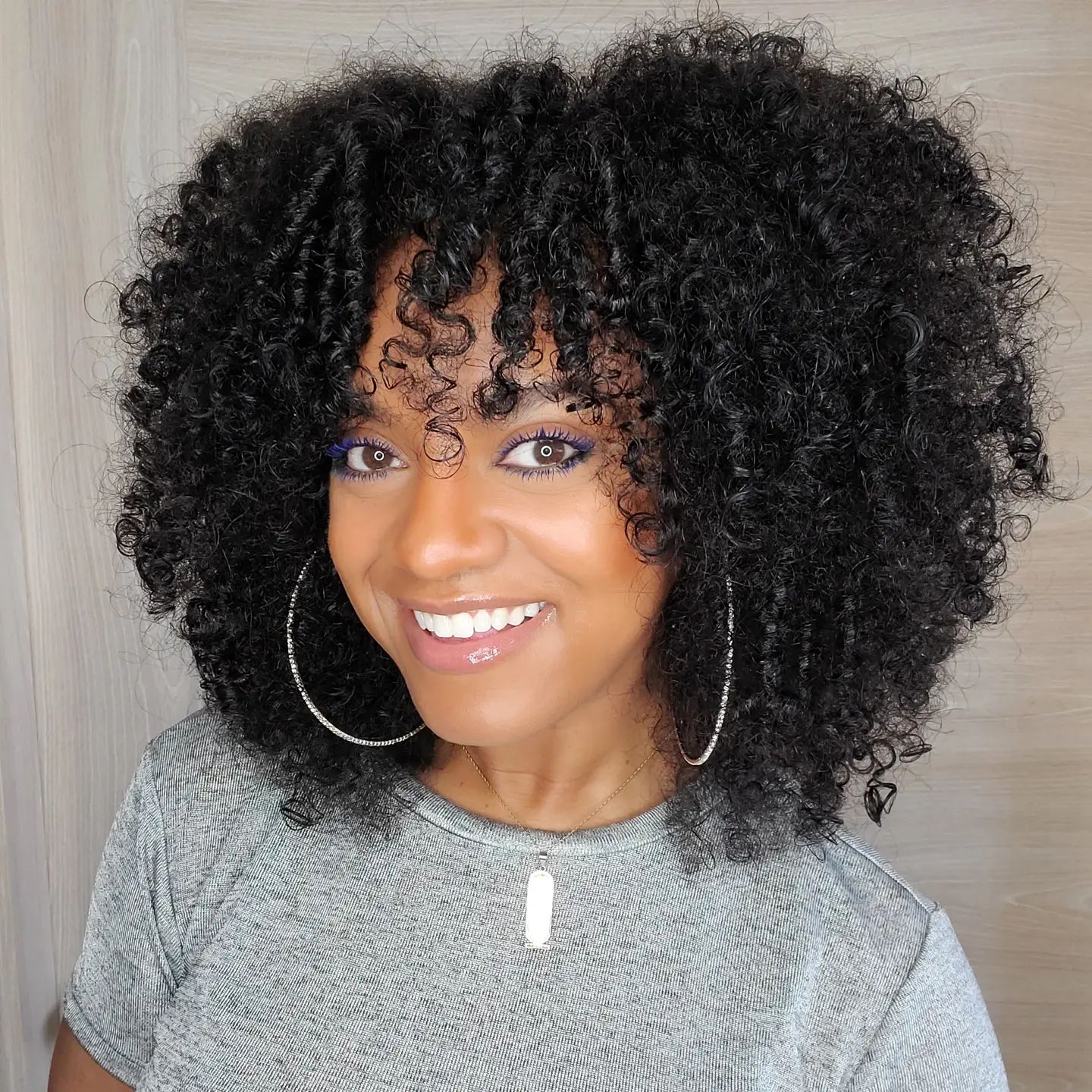
Cataanda James is a natural hairstylist and brand educator for The Mane Choice. Currently, she's based in New York City.
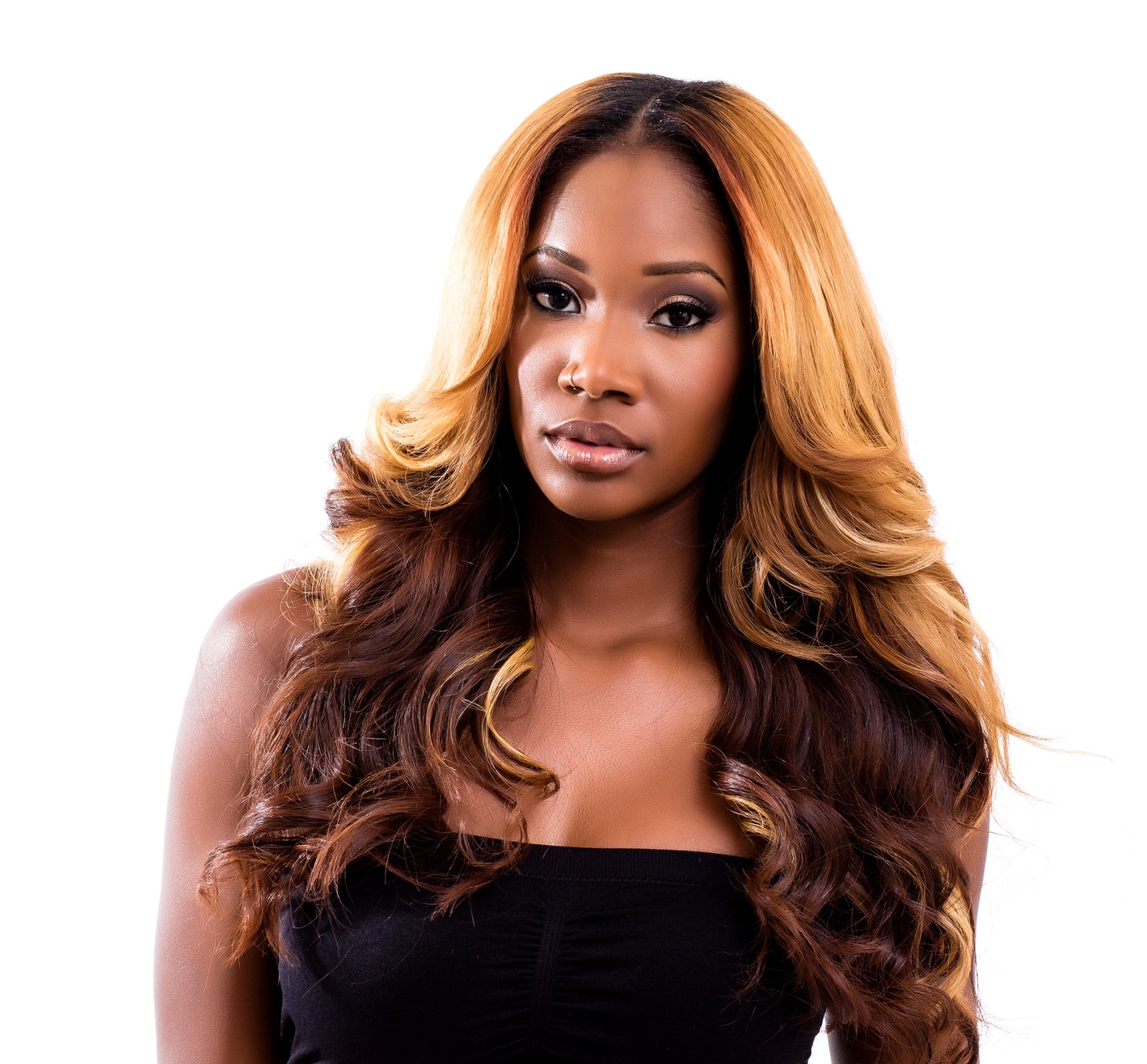
Destiny Kelly is a hair stylist, licensed master cosmetologist, and owner of Salon N-V-Me. She also works as a brand educator for Aunt Jackie's Curls & Coils. Currently, she is based in Atlanta.
Get exclusive access to fashion and beauty trends, hot-off-the-press celebrity news, and more.
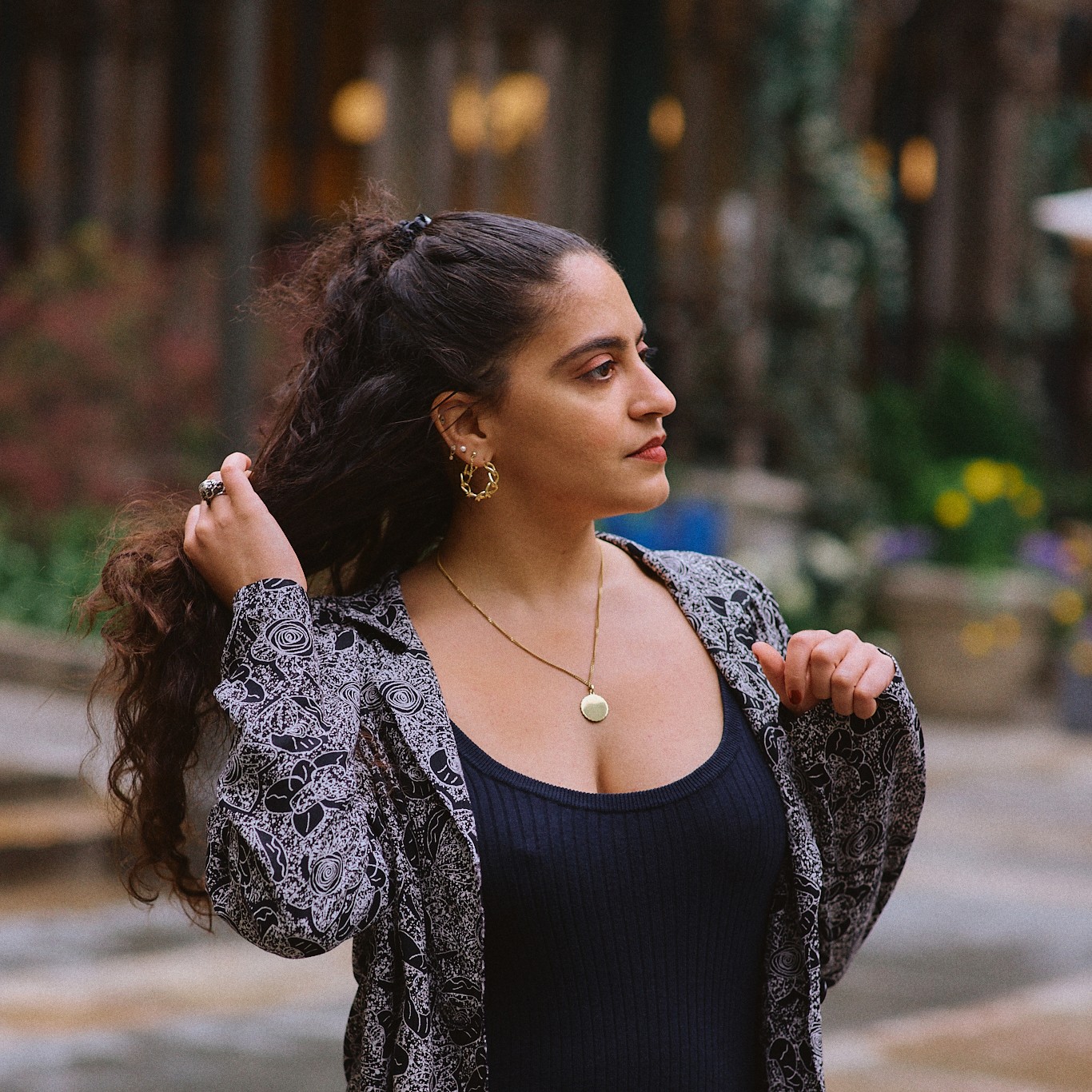
Gabrielle Ulubay is a Beauty Writer at Marie Claire. She has also written about sexual wellness, politics, culture, and fashion at Marie Claire and at publications including The New York Times, HuffPost Personal, Bustle, Alma, Muskrat Magazine, O'Bheal, and elsewhere. Her personal essay in The New York Times' Modern Love column kickstarted her professional writing career in 2018, and that piece has since been printed in the 2019 revised edition of the Modern Love book. Having studied history, international relations, and film, she has made films on politics and gender equity in addition to writing about cinema for Film Ireland, University College Cork, and on her personal blog, gabrielleulubay.medium.com. Before working with Marie Claire, Gabrielle worked in local government, higher education, and sales, and has resided in four countries and counting. She has worked extensively in the e-commerce and sales spaces since 2020, and spent two years at Drizly, where she developed an expertise in finding the best, highest quality goods and experiences money can buy.
Deeply political, she believes that skincare, haircare, and sexual wellness are central tenets to one's overall health and fights for them to be taken seriously, especially for people of color. She also loves studying makeup as a means of artistic expression, drawing on her experience as an artist in her analysis of beauty trends. She's based in New York City, where she can be found watching movies or running her art business when she isn't writing. Find her on Twitter at @GabrielleUlubay or on Instagram at @gabrielle.ulubay, or follow her art at @suburban.graffiti.art